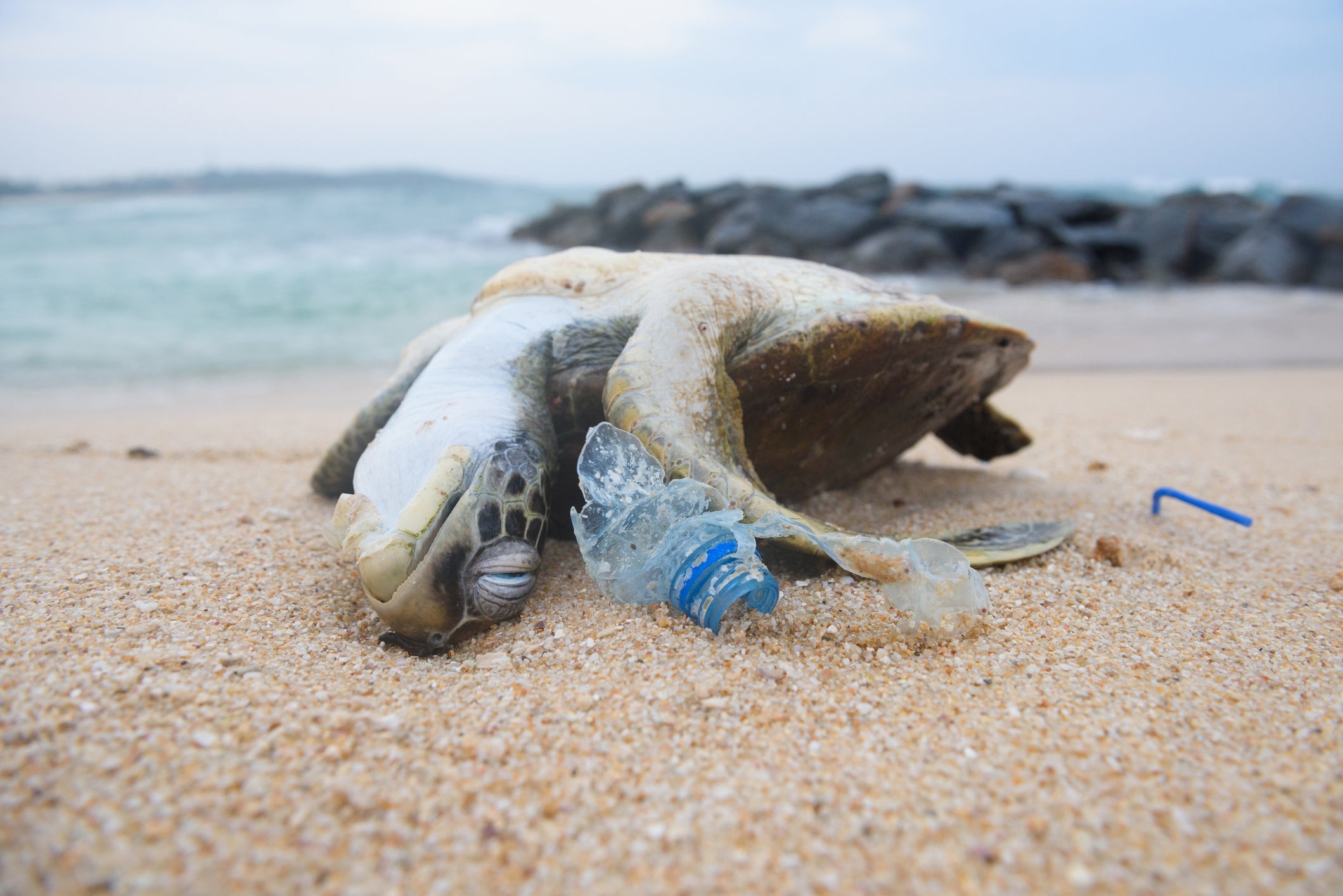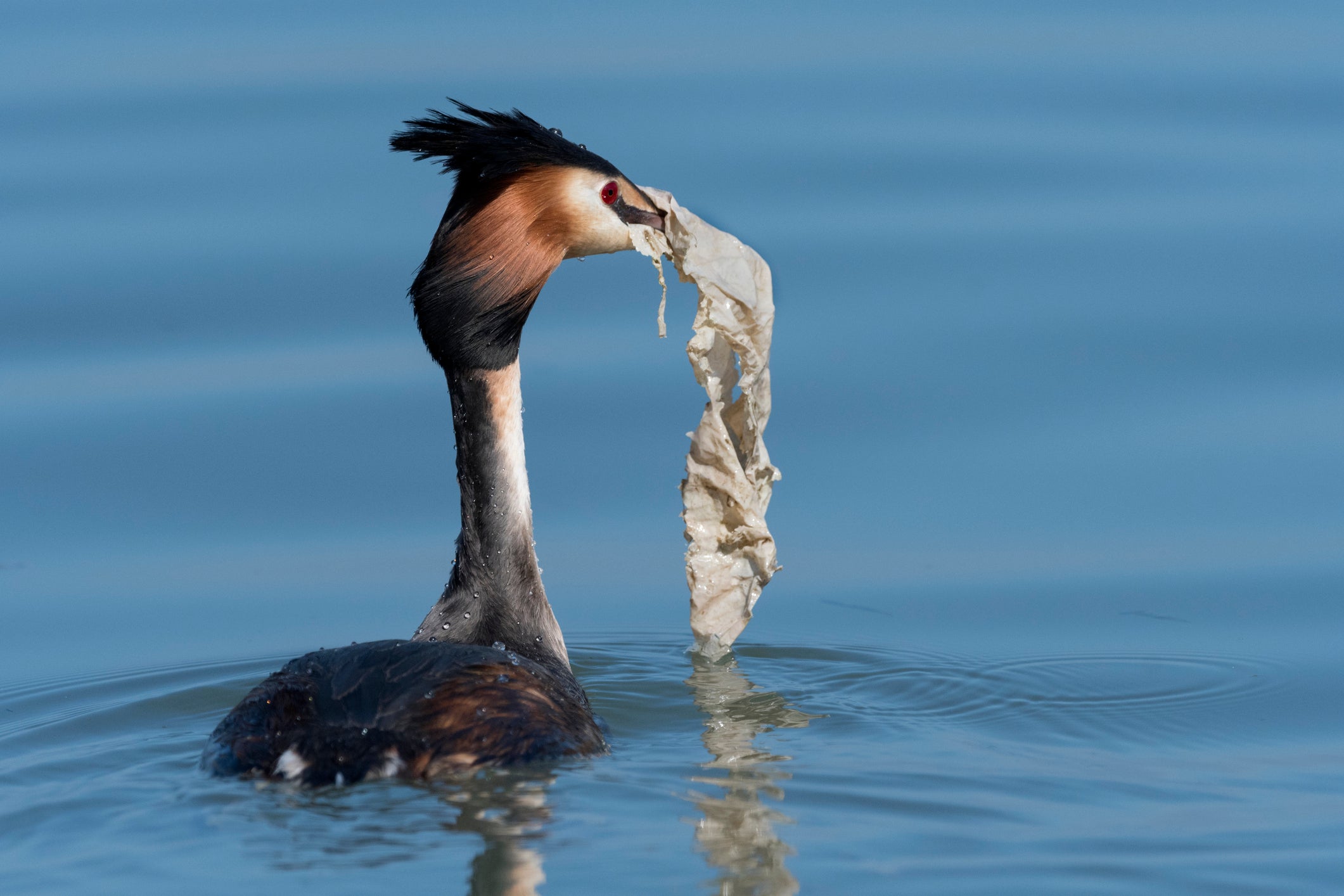Our production of plastic waste is out of control – this could be our last chance to do something about it
Work on a treaty to deal with the issue has reached a crucial juncture, writes Stanley Johnson. Could this be our final opportunity to save our environment from the polymer scourge?


At the beginning of this week, as an author and campaigner, I had a long and friendly meeting with Luis Vayas Valdivieso, who serves not only as Ecuador’s ambassador to the United Kingdom but also as the chair of the Intergovernmental Negotiating Committee (INC) on plastic pollution.
What is the INC? Well, readers of The Independent may remember the paper’s banner headline on 2 March, 2022:
Countries agree ‘historic’ move to draw up legal treaty to end plastic pollution
“Representatives of 175 countries endorsed a resolution at the UN Environment Assembly [Unea] in Nairobi to end plastic pollution and draw up an international legally binding agreement by 2024.
“Negotiation efforts will begin this year, and the treaty is expected to tackle plastic through its life cycle, including its production, design and disposal.”
After the meeting, Inger Andersen, executive director of the United Nations Environment Programme (Unep), said: “Today marks a triumph by planet Earth over single-use plastics.”
The then international environment minister, Zac Goldsmith, said: “This agreement by governments at Unea is truly historic, and I’m so proud that the UK co-sponsored the proposals and helped get them over the line.”
Well, euphoria has its sell-by date. With the eyes of the world on other issues – Ukraine, the Middle East, the US election, etc – is there a danger that the heady enthusiasm of March 2022 may prove to have been misplaced?

Ambassador Vayas said that work on the plastic pollution treaty had now reached a crucial phase. Even though the INC has had four meetings so far (the most recent – INC 4 – held in Ottawa, Canada, in April this year), these events – as the ambassador put it – have been based on information exchange and discussion, rather than negotiating sessions.
The Intergovernmental Negotiating Committee aims to approve the text of an international legally binding instrument (ILBI) at its fifth session, which will take place from 25 November to 1 December in Busan, Republic of Korea. As the ambassador put it to me: “To achieve this goal, we will have only seven days at INC 5 in which to finalise the text if we are to conclude, as we must according to the UN resolution, by the end of 2024.”
The ambassador frankly admitted that the document currently before governments and other interested parties is far from ideal as a basis for negotiation. “It bristles with brackets, footnotes and ‘options’, and extends altogether over 70 pages. In my continuous consultation since INC 4, I have heard from a very broad range of members that, if we are to work incrementally on the current compilation text, we will not achieve our goal in INC 5. I share this view.”
If ever a warning flag was being ever so diplomatically raised, this was that flag.
Ambassador Vayas is now engaged in intensive discussions with UN members. His hope is to build a common understanding of how a text can be agreed and approved at INC 5.
One of the key issues in the text to be negotiated in Busan will be what the term “full life cycle” (as mandated by the 2 March 2022 UN Resolution) actually means.

Will the final text indicate which polymers will be targeted, not merely for “reduction” in terms of the quantities produced, but actually for “elimination” due to their intrinsic hazard (including to human health), leakage into the environment, and recyclability?
Will the text clearly recognise that action on plastics, whether at the production or the consumption stage, will crucially impact the attainment of other sustainable development goals, including health, where the potential health impact of microplastics is of increasing concern?
For example, the impact of plastic production on the attainment, or otherwise, of climate goals is immense. According to documents now being considered by delegates, in 2020 the total lifecycle emissions from plastics were estimated at 2.4 billion tonnes (Gt) of carbon dioxide equivalent (CO2 e).
In 2050, under conservative growth scenarios and assuming decarbonised power grids, the total lifecycle emissions are estimated to increase to 3.9 Gt CO2 e, constituting 19-23 per cent of the remaining global carbon budget to limit warming to 1.5°C under the Paris Agreement.
Widespread calls have come from governments, civil society, scientists and progressive industries for the ILBI to include a framework for reducing polymer production to sustainable levels.
How ready will delegates to the Busan meeting be to respond to those calls?

Realistically, less than 10 per cent of plastics are recovered, reused or recycled. Without action on the production (or supply) side, we may be spitting in the wind.
At the end of our conversation, I was in absolutely no doubt that the ambassador, as chair of the INC, is determined to press for the best possible outcome of negotiations in Korea and at INC 5.
The UN resolution of 2 March 2022 was sponsored by Peru and Rwanda. Co-sponsors included the UK. Those countries, with other parties such as Germany, Ghana, Vietnam, and the EU, continue to play a key role in the development of the Global Plastic Treaty. But as a former minister in the government of his country, and now as Ecuador’s ambassador to London, Luis Vayas clearly welcomed the fact that the world is already talking informally about the “Galapagos Plastic Pollution Treaty”.
“Galapagos belongs to Ecuador,” he said, “but there is a special resonance in the name.” But conscious of his role as chair, he quickly added: “I must be strictly neutral in this, as in all matters.”
The ambassador had a final thought. If Galapagos did finally emerge as the venue of choice for a signing ceremony, perhaps King Charles himself might be able to attend in person.
“It would be so good to welcome King Charles and Queen Camilla in Santa Cruz,” Ambassador Vayas said.
That was a good note to end on.
Stanley Johnson’s most recent book, ‘In the Footsteps of Marco Polo’, is published by Telensky International Editions
The Independent will be hosting a Climate 100 event in New York on Wednesday 25 September, which can be attended online. To reserve your place click here






Join our commenting forum
Join thought-provoking conversations, follow other Independent readers and see their replies
3Comments